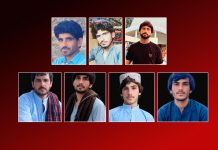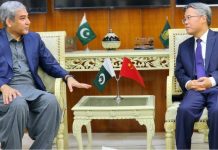Author: Mir Sanjar
Maintaining coexistence is a fragile equilibrium that can easily be disrupted when cultural identities are not respected. As the renowned anthropologist Franz Boas once said, “the loss of languages and cultures is one of the most tragic consequences of the modern world.” This is particularly relevant when it comes to the Baloch people, whose unique cultural identity is under threat.
According to the United Nations Declaration on the Rights of Indigenous Peoples, “Indigenous peoples have the right to maintain and strengthen their distinct political, economic, social, and cultural characteristics, as well as their legal systems, while retaining their rights to participate fully, if they so choose, in the political, economic, social, and cultural life of the State.” The Baloch people have the right to preserve their cultural identity and language.
However, international laws highlight the importance of preserving one’s mother tongue and ethnic identity. It is crucial to acknowledge the importance of coexistence and the preservation of cultural identities, as demonstrated by developed countries with diverse ethnicities living together.
In Sindh, the Baloch people are often regarded as a source of manpower, and their identity is not considered separate from Sindhis. Whether it’s ethnic clashes against the Mohajirs and Pathans in Sindh or the fight for freedom against the Pakistani state, the Balochs have been at the forefront of the struggle.
Many Sindhi literary works manipulate the Baloch identity. Common examples include changing its name to Baroch, which is a Sindhi invention only used in Sindh. The division of the Baloch into Balochi and Brohi, making Balochi and Brahui (another Sindhi invention like Baroch) two different ethnicities, and further sub-division into Makrani and Sulemani (two dialects of Balochi) is a deliberate attempt to weaken the Baloch identity. Sindhi writers even wrote delusional history books about Balochistan.
For quite some time now, students have been asking for the acknowledgment of their national identity as Baloch of Sindh rather than being called Sindhi, which arguably is not a majority anymore in Sindh.
To oppose this awakening, some so-called Sindhi nationalists, who are ethnic Balochs, have been desperate to justify their distinction from their own blood and ethnic identity. They have gone from calling themselves nationalists to suddenly becoming patriots. It is crucial to keep in mind that these are the same people who fought against the Mohajirs and Pathans in Sindh based on ethnicity.
The Baloch people are alone in their struggle for cultural preservation. As Nelson Mandela once said, “the cultural, spiritual, and economic domination of one group over another can only lead to violence.” This sentiment is echoed in the experiences of many indigenous peoples around the world who have been subjected to cultural and linguistic domination. The preservation of cultural identities is essential for the well-being of all people as it contributes to the diversity and richness of our world.
In the words of the renowned philosopher John Stuart Mill, “the only freedom which deserves the name is that of pursuing our own good in our own way, so long as we do not attempt to deprive others of theirs or impede their efforts to obtain it.” The Baloch people have the right to pursue their cultural identity in their own way without interference from others.
Therefore, it is crucial for all people to recognize the importance of preserving cultural identities and working together towards a future where coexistence is based on mutual respect and understanding. As the famous writer and philosopher George Santayana once said, “those who cannot remember the past are condemned to repeat it.” It is our duty to learn.
——————————–
Disclaimer: The views and opinions expressed in this article are those of the author and do not necessarily reflect the official policy or position of The Balochistan Post or any of its editors.






























